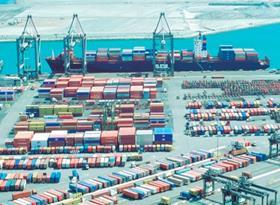
Asoex has voiced its growing concern over the worsening crisis at ports on the US West Coast which is threatening to derail Chile’s export season as it enters its peak supply period. President Ronald Bown said the situation was causing huge uncertainty amongst shippers and disrupting the flow of goods to the market.
James McKenna of the Pacific Maritime Association has warned that operations at the 29 West Coast ports could come to a complete standstill following months of chronic congestion. Terminal operators accuse the unions of orchestrating a slowdown in a bid to boost their bargaining power in protracted contract negotiations.
Around 30 per cent of Chilean fruit exports to the US are shipped to West Coast ports. According to Asoex, volumes are down by 25 per cent so far this season compared to 2013/14. Bown said the slowdown instigated by port unions last May is creating huge backlogs and the situation showed no sign of being resolved in the short term. He warned that the biggest impact was likely to be in table grapes, Chile’s principle fruit export to the US.
“A total of 63 tonnes of fruit has been shipped to the West Coast so far this season, which represents a fall of 25 per cent on the volume registered at this point last season,” he said.
The problems are especially acute at major ports such as Los Angeles, forcing shipping lines to find alternative ports such as Hueneme. However, this has resulted in major delays in discharging cargo.
“Whereas before it took around three days to unload a vessel today it can take anything up to a week and require three different ports,” Bown said. “Some exporters are now using East Coast ports and trucking cargoes to different markets in order to fulfil their commercial obligations, which entails additional costs and challenges to ensure fruit arrives in the right condition.”
The US is Chile’s biggest fruit market, accounting for 753,248 tonnes of the 2.35m tonnes shipped in 2013/14. Table grapes, apples and blueberries are the top three export items.



